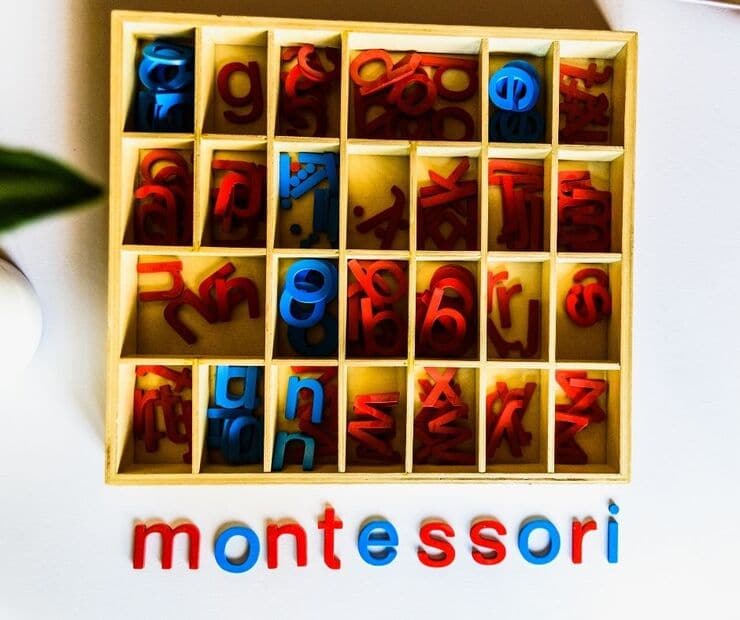
As an adult, have you ever looked back on some of your classes and asked yourself, why? Two complex subjects are math and science. It’s recommended to teach children these concepts at a young age. One teaching approach that embraces this philosophy is the Montessori Method. Early learning gives children a deeper understanding and helps their development. Toddlers also have better retention of tough topics during these impressionable years. It’s not abnormal to have struggled with certain classes as a kid. For example, how many of us have used algebra in adulthood? Most of us have strengths in certain areas and limitations in others. Reasons vary, but one might be the teaching techniques implemented in your learning. Your teachers and parents were likely following recommendations deemed effective at the time.
Montessori education’s fundamental belief is letting children learn naturally while being overseen. This technique was founded by Dr. Maria Montessori, an Italian physician then educator. In 1907, she opened her first classroom in Rome with 50-60 young children. Montessori divided the children into two age groups, 2-3 and 6-7. She was successful and, in 1907, opened her 2nd school. By 1911, the Montessori Method was adopted by all public schools in Italy and Switzerland. This educational approach is still widely applied today. A misconception is that all Montessori schools are faith-based. While some schools are, others aren’t.
The Montessori learning environment is safe, interactive, self-guided, and includes group play. Activities are available for children to pursue their natural interests. The classroom is set up into different education areas. Each learning space has materials pertaining to particular subjects. The facility has stations for math, science, and language. Other setups have music, play, socialization, and so on. A child learns through their personal experiences and at their own pace.
The Montessori Approach primarily focuses on childhood development and education. Today the method divides students into three age groups.
Ages 0-3
The infant and toddler stage is a delicate point in early childhood development. A Montessori learning center will prioritize safety and begin building trust. Teachers will focus on promoting healthy self-esteem and guided independence. Other core developmental skills include cognitive, social/emotional, language, and creativity. Infants and toddlers will develop sensory skills like fine and gross motor skills. As they grow and advance, they learn nutrition, self-help, and hygiene. As a child becomes more capable, teachers work to enhance their developmental milestones. Rita Schrank has written two toddler educational guides using Montessori techniques. Parents and teachers can use Toddlers Learn by Doing and Science, Math, and Nutrition for Toddlers.
Ages 3-6
Montessori educators continue to enhance a child’s development from 3-6. Teachers also begin to focus on functional independence. Teachers will start to instill a sense of perseverance when completing tasks. When children learn not to give up at a young age, even on something simple, they’ll grow up with determination. The learning center also helps promote other inner strengths, like self-discipline and control. Educational materials in the classroom centralize literacy, math, science, and creativity.
Ages 6-12
Initially, the Montessori approach didn’t focus on elementary and middle school students. However, the effective methods are now taught to children from age six through 12. In the classroom, students work and learn together. Classmates get to experience and explore intellectually stimulating activities. The curriculum also focuses on creativity, self-expression, personal growth, and mental fortitude. Teachers play a critical role in building and maintaining students’ self-confidence and self-sufficiency. School-aged children are actively encouraged to think freely and independently. Another Montessori educational principle is helping the greater good. Students actively participate in their community and beyond, making a positive difference.
Effectiveness of Montessori Learning
Montessori education is effective for children enrolled in these types of programs. Benefits include academic success, social awareness, and maturity. Adults who had a Montessori education react positively to adversity. Through development and learning, students attain advanced social skills. As adults, they know how to modify their emotions and behaviors based on situations.
If a Montessori School sounds like something you may be interested in, check to find one in your area. Other homeschooling methods are also available.
